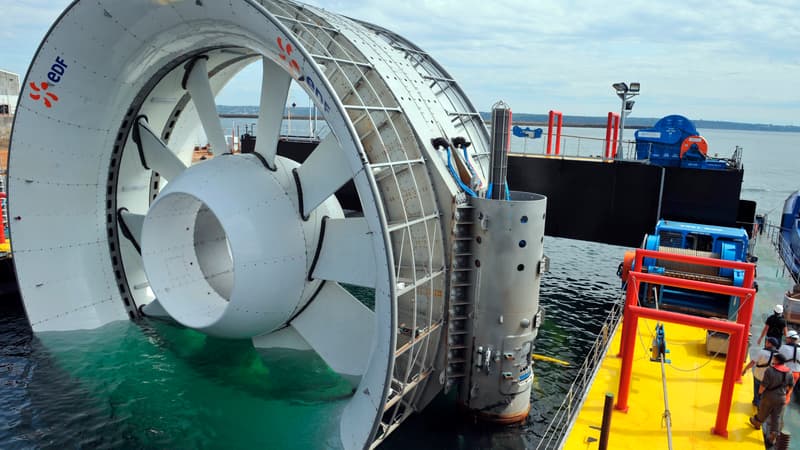The State has decided to contribute at least 65 million euros to a pilot project for tidal turbines, a technology under development that uses ocean currents to produce energy, the Ministry for Energy Transition announced this Friday.
This project, called “Flowatt” and carried out by the companies Hydroquest and Qair, is located in the English Channel in the Raz-Blanchard area, which is very rich in currents.
It will be supported under the France 2030 plan up to “a minimum of 65 million euros”, and will also benefit from a preferential purchase price for the electricity produced, the ministry says.
This 17.5 megawatt (MW) pilot project is comprised of seven turbines, designed by Hydroquest and built by CMN shipyards in Cherbourg. It should be commissioned in 2026 to operate for 20 years.
France has some of the strongest currents in the world.
Previously, Hydroquest had tested its technology for two years through a 1 MW demonstrator at Paimpol-Bréhat.
France has some of the strongest currents in the world, with potential for tidal turbines estimated between 3 and 5 GW, located mainly in Raz-Blanchard and in Fromveur, off the island of Ouessant (Finistère).
While the public powers must mark the new energy roadmap for the country in the coming months, tidal turbine operators are demanding a return to state support, greatly reduced after the bankruptcy in 2018 of an actor in the sector.
At the end of 2020, the EU also set a target of 40 GW of ocean power capacity, excluding offshore wind, by 2050.
Source: BFM TV


